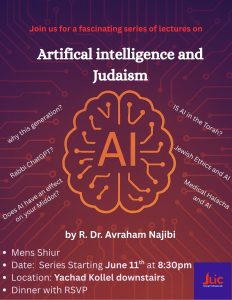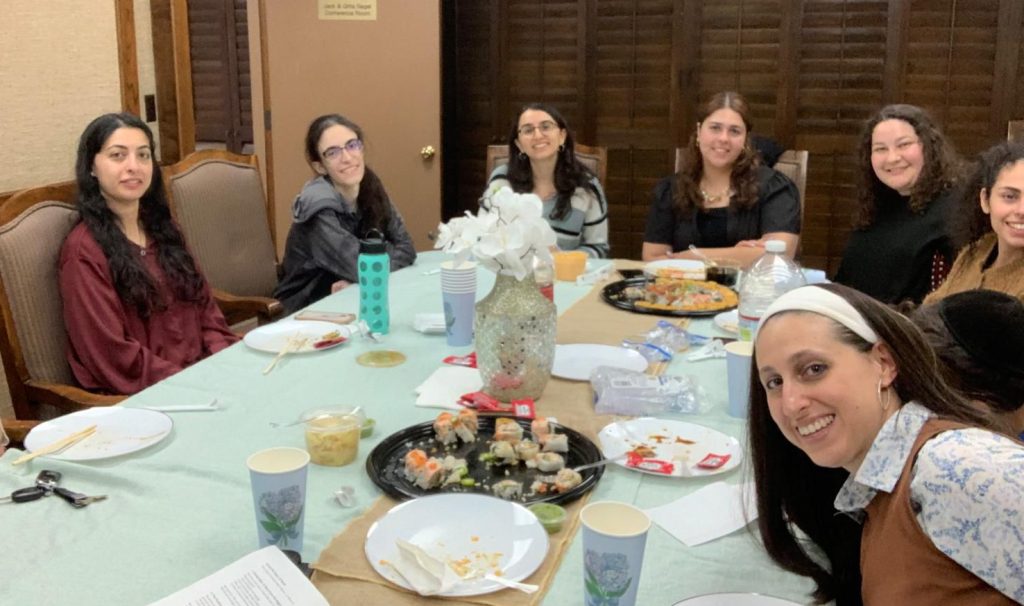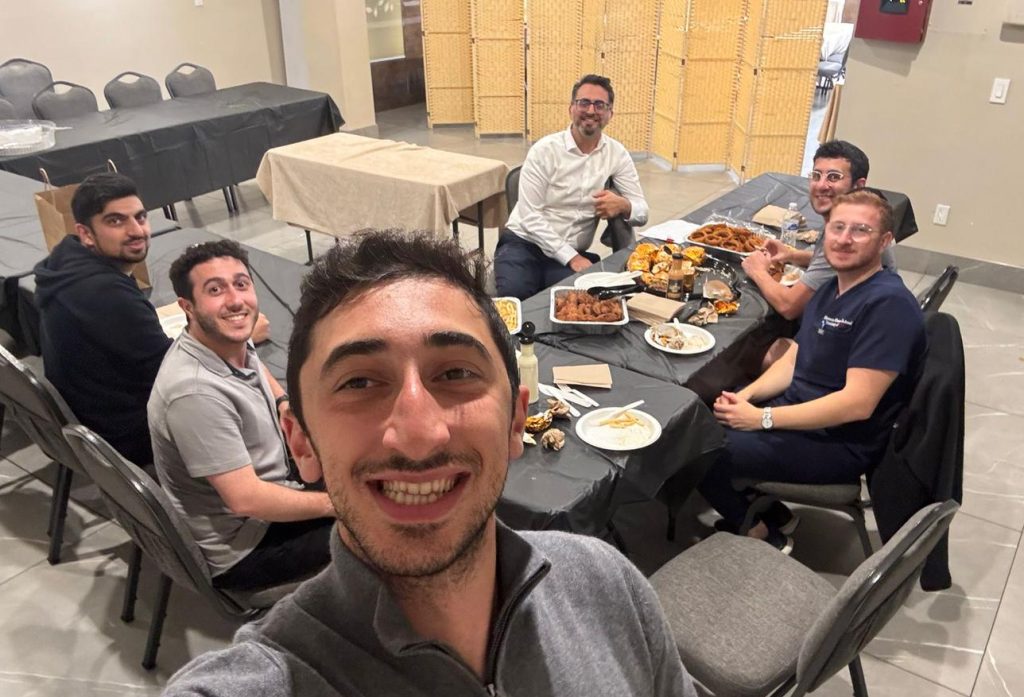 The question hit the room like a lightning bolt: “Can artificial intelligence have a soul?”
The question hit the room like a lightning bolt: “Can artificial intelligence have a soul?”
It was the kind of question that would have seemed absurd just a few years ago. But there they were on a Tuesday evening, a room of young Jewish professionals—doctors, lawyers, tech workers, rabbis—all leaning forward in their chairs, genuinely wrestling with whether ChatGPT might somehow connect to divine wisdom.
This was JLIC West Young Professional’s lecture series on “Artificial Intelligence and Judaism,” led by Rabbi Dr. Avraham Rod Najibi. What started as a simple exploration of how AI fits into Jewish life quickly became something much bigger—a deep dive into what it means to be human in an age of machines.
Learning from Past Technological Shifts
The opening session drew an eclectic crowd of young professionals and graduate students from medicine, law, finance, and Jewish education. Many came with real-world experiences of AI in their professional lives—physicians using AI for diagnoses, lawyers dealing with algorithmic decision-making, and tech workers navigating the ethical implications of the systems they build.
Dr. Najibi started with a clever historical perspective that got everyone nodding. Remember when the printing press was going to destroy Torah study? When the telephone would eliminate face-to-face conversation? When the internet would make rabbis obsolete? Every generation, he explained, faces the same challenge: How do we embrace innovation without losing our souls?
AI feels different, doesn’t it? More unsettling. Maybe because it’s not just changing how people do things—it’s challenging what they thought only humans could do.
The Questions That Keep People Up at Night
The real magic happened when the discussion turned practical. Participants raised questions about liability when self-driving cars cause accidents, whether facial recognition could determine Jewish lineage, and the ethics of AI making medical treatment recommendations. The multidisciplinary background of attendees enriched these conversations with thoughtful questions about both practical halachic implications and deeper philosophical considerations.
These weren’t abstract theological debates. These were real dilemmas facing real people in their daily lives. And that’s where JLIC thrives—in the messy intersection of ancient wisdom and modern complexity.
The conversation that really captured the room’s attention focused on daat—that uniquely Jewish concept of deep, experiential knowledge. It’s not just knowing facts; it’s wisdom that comes from living, feeling, struggling. Can AI ever have daat? The attendees discussed that wisdom requires a soul, suffering, joy—things machines can’t experience. Others pointed out that AI can process patterns in human behavior that might reveal information humans missed.

Beyond the Hype and Fear
What made this series noteworthy wasn’t just the topic—though AI and Judaism is certainly a timely combination. The organizers stayed balanced—they didn’t treat AI as either a miracle cure or a disaster. No “AI will solve all our problems” or “robots are going to destroy Judaism” rhetoric. Just honest, thoughtful exploration of how these tools fit into a life guided by Jewish values.
The upcoming sessions promise even more practical applications. Session two will tackle everything from medical ethics to Shabbat observance with smart technology. The final session plans to explore something even more intriguing: why AI might be emerging now, in this generation specifically. Is there something about this moment in Jewish history that makes artificial intelligence not just inevitable, but somehow necessary?
The Real Innovation Here
This series represented something different—a community that doesn’t just react to change but actively engages with it. Instead of waiting for AI to disrupt Jewish life and then scrambling to catch up, they’re getting ahead of the conversation.
The young professionals who attended wanted a framework for thinking through these questions as they arise. They wanted to know that their Jewish identity could guide them through technological changes.
Maybe that’s the most human response of all to our AI moment: not to figure out how to compete with machines, but to remember what makes people irreplaceably human. The energy in the room suggested these conversations would continue long after the formal sessions ended. In a world of artificial intelligence, the real innovation might just be creating spaces for this kind of thoughtful dialogue about what makes us irreplaceably human.
Reach out to any of our Directors to learn more about JLIC and to support our programming.
Related Posts
Jewish Grad Students Pay It Forward at JLIC’s MedConnect Panel
From Stress to Success: Young Couples Unite for JLIC’s Shalom Bayit Workshop
JLIC West Coast Initiative Supporting Health Science Students
From Campus to Courtroom: JLIC Empowers Jewish Law School Students
